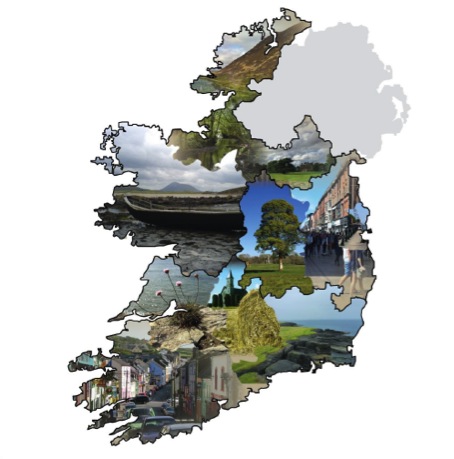Rethinking the Spatiality of Spatial Planning: Methodological Territorialism and Metageographies, European Planning Studies (online first)
This paper, accepted by European Planning Studies in Ocotber 2012 and now available in the ‘latest articles’ section online is my most theoretical paper to date, as indeed the title might indicate. The empirical work it draws on, is drawn primarily from my PhD research on strategic spatial planning for the Dublin-city region. The focus here is on the territorial politics (or perhaps, local scale geopolitics) of spatial planning. It is well-known perhaps that ‘localism’ is a key feature of Irish planning and development practice. But what do we mean by ‘localism’ precisely? What type of geograhical associations does localism in spatial planning apply?
This paper contributes to partially answering these questions – although admittedly using more convoluted/technical/precise? terminology. Specifically the focus is on the influence of ideas of politically-bounded territorial space on the representation of space in spatial planning documents and in the spatial politics or discourses of political representatives associated with the planning processes for the city-region. In this case, county boundaries represent the dominant spatial imaginary or ‘metageography’. At the same time, however, processes of strategic spatial planning seek to introduce new ways of thinking about relations across space, based on ideas of fucntional geography and to smoe extent relational space. This ‘soft space’ approach is however constrained by the dominant territorial imaginaries which continue to focus on the political and administrative boundaries rather than functional relations.
The paper has gone through a long process with many iterations along the way. Previous versions were presented at the Regional Studies Association Annual International Conference in Pecs, Hungary and at a European Urban Research Association workshop in Oslo (both in May 2010). A working paper version was also published as part of the NIRSA working paper series in November 2010.
Published Abstract
This paper argues for increased attention to the role of territory and territoriality in framing sociospatial discourses in the context of spatial plan making. In particular, it is suggested that the engagement of political actors with processes of spatial planning tends to be framed within particular spatial imaginaries which reflect established political-administrative and territorial boundaries. It is contended that a critical analysis of the territorial framing of processes of spatial planning is necessary in order to understand the capacity for spatial strategies to effectively challenge and reconfigure established sociospatial imaginaries in functional or relational terms. It is suggested that spatially explicit public policy statements, such as planning strategies, may be characterized by specific assumptions of territorial space, in a similar manner to which mainstream social science has contained implicit assumptions of state-centrism. The salience of territorial spatial imaginaries is demonstrated in the case of European spatial planning and through a local case study of city-regional spatial planning and politics in the Greater Dublin Area.


